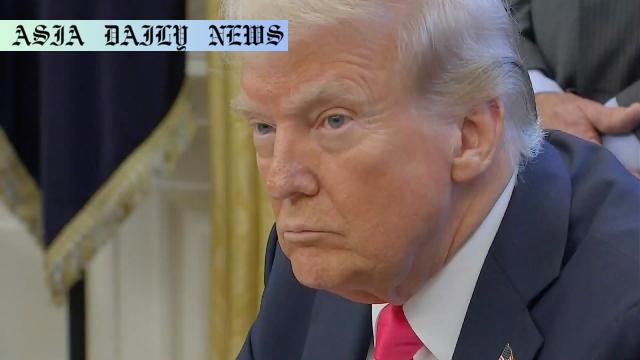Anonymous sources spark heated debate as Trump hints at potential legal actions against authors, publishers, and news outlets.
Trump warns against the misuse of anonymous sources by media, promising possible legal action.
The administration claims that such sources promote false or defamatory narratives.
Trump hinted at creating legal frameworks to regulate anonymous reporting.
A Wall Street Journal editorial criticizing tariffs was also targeted in his posts.

Trump’s Warnings Against Anonymous Sources
In a recent series of statements, former US President Donald Trump warned media outlets, book authors, and publishers about their continued reliance on anonymous sources. Trump described these sources as unverified and potentially fictional, which he claims contribute to the spread of what he terms as ‘fake news.’ This move has added fuel to the ongoing debate about the ethical use of anonymity in journalism and publishing.
Legal Action: A Question of Feasibility
Trump has announced that he may file lawsuits against those he accuses of spreading defamatory information based on alleged anonymous sources. The former president suggested that pressing legal action could force transparency and possibly reveal if these sources even exist. Such measures would represent a major shift in the US legal framework regarding freedom of the press and could spark constitutional debates.
Potential Media Regulations
Beyond legal action, Trump hinted at the possibility of creating laws that would regulate the reporting practices of media organizations. If implemented, such regulations could fundamentally alter how journalism operates in the United States, raising concerns about press freedom. The move has predictably drawn criticism from media organizations and advocacy groups, further polarizing public opinion.
Challenges for Journalism Ethics
The use of anonymous sources is a long-standing journalistic tactic, often employed to protect individuals who may face repercussions for whistleblowing or sharing sensitive information. Critics argue that undermining this practice could discourage critical revelations that serve public interest. Meanwhile, proponents of Trump’s stance insist that greater accountability is needed to curb deliberate misinformation.
Criticism Over Trade Policy Coverage
Trump’s social media posts didn’t just target anonymous sources; he also criticized a Wall Street Journal editorial that claimed his tariff policies would harm American auto workers. Dismissing the criticisms as inaccurate, Trump accused the publication of perpetuating false narratives akin to the alleged spread of misinformation through unnamed sources.
Action Against Specific News Outlets
The tension between Trump and media organizations has been escalating steadily. His administration reportedly banned the Associated Press from covering select venues, including Air Force One and the Oval Office, accusing the agency of disrespecting his administration’s standards. Such actions indicate the deepening divisions between Trump’s camp and traditional media organizations.
A Broader Debate on Free Press
This ongoing conflict between Trump and the media raises significant questions about the state of journalism, misinformation, and the protection of press freedom. Balancing accountability with the need for an independent press is a delicate task, and this issue will likely continue to dominate discussions in the media landscape for years to come.
Commentary
A Double-Edged Sword: The Debate Over Anonymous Sources
The controversy surrounding the use of anonymous sources in media is as complex as it is polarizing. On one hand, these sources have historically played a pivotal role in uncovering some of the deepest layers of corruption and abuse of power. Anonymous informants have contributed to iconic journalistic achievements, from the Pentagon Papers to the Watergate scandal. Critics of Trump’s recent remarks fear that targeting these sources and their usage may undermine the very foundations of investigative journalism.
The Case for Accountability
While there is undeniable value in anonymity, it is not immune to abuse. In an age where misinformation spreads like wildfire, the unchecked reliance on anonymous “insiders” can sometimes harm individuals and institutions. Trump’s stance, although controversial, brings attention to the need for more substantial vetting processes. If implemented responsibly, reforms could enhance credibility without stifling free speech or press freedom.
Opportunities for Dialogue
Regardless of personal opinion on Trump’s statements, the conversation they ignite presents an opportunity for introspection within the media industry. Trust in journalism has been eroding in the modern era, and a balanced approach to accountability could help rebuild that lost confidence. For now, the ongoing battle between Trump and the press serves as a reminder of the critical need to safeguard both journalistic integrity and the freedom of expression.


